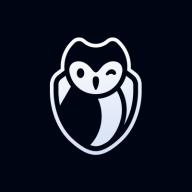

GitLab and GitGuardian Platform are prominent players in the DevOps domain, competing in areas of CI/CD and security, respectively. GitLab holds an advantage in seamless collaboration due to its robust CI/CD pipelines, whereas GitGuardian excels in security vulnerability detection with impressive accuracy and quick remediation.
Features: GitLab features robust CI/CD pipeline management, comprehensive code review capabilities, and seamless integration with repository functions and branch management for collaboration. GitGuardian Platform focuses on detecting vulnerabilities with attention to secrets management, boasting high detection accuracy and an effective alerting system that involves developers in quick remediation.
Room for Improvement: GitLab could improve its integration with AWS and enhance project management tools like Jira. There's room for more security integrations and cloud-native capabilities. GitGuardian could enhance the efficiency of historical scans and improve Azure DevOps integration. It also needs better user management features for task assignments.
Ease of Deployment and Customer Service: GitLab offers deployment options in Public, Private, Hybrid clouds, and on-premises. Community support is prominent, with mixed reviews about dedicated support. GitGuardian Platform offers diverse deployment options and is commendable for its dedicated support, although initial setup can pose challenges for users.
Pricing and ROI: GitLab offers a free tier with charges for premium features, viewed as expensive by some users. It delivers strong ROI by saving time and enhancing deployment efficiency. GitGuardian Platform is priced reasonably, considering its security offerings, but costs can be high for large teams. Its pricing is justified by the value it delivers in data breach safeguarding, resulting in positive ROI sentiments.
I can certainly say that we have saved significant time and resources in terms of people and automation.
The majority of our incidents for critical detectors and important secret types are remediated automatically or proactively by developers through GitGuardian's notification system, without security team involvement.
Migrating to GitLab is bringing time-saving benefits, and everything is easier to automate.
We have saved time significantly, reducing deployment time from four hours to five minutes per deployment.
It effectively helps us with credentials security and has been performing satisfactorily.
I would rate their technical support a nine out of ten.
I would rate the technical support as excellent.
We have rarely needed to escalate issues to technical support since GitLab usually runs seamlessly.
I have interacted with architects for some advice during the implementation, and they were prompt in their response.
I have had meetings where they taught me, explained things, and provided guidance for starting from scratch.
In terms of scalability, I would rate it around a ten out of ten, as it handles all the repositories and commit activity we have.
I would rate it a ten out of ten for scalability.
Currently, what GitGuardian Platform is doing works effectively.
It has all the features required for our coding and deployment needs, which makes it scalable to our changing requirements.
We're transitioning to OpenShift for future scalability with increased user numbers.
For scaling, other deployment options from GitLab's side need to be adopted.
We set up a lot of the repository, so GitGuardian is a required check.
The SaaS platform has experienced two significant moments of downtime or instability in the last six months, requiring notices and retrospectives.
I would rate the stability of the GitGuardian Platform as excellent with no downtimes.
I have not encountered any performance or stability issues with GitLab so far.
The updates are frequent and demanding, happening at least once a week due to security reasons.
We raised a request with GitLab support, but they were unable to help because they could not find the root cause of what went wrong.
Another thing that would be good to see is some more metrics on the usage of the GitGuardian pre-push hooks.
The self-healing activity by developers isn't reflected in the analytics, requiring us to collect this data ourselves.
We are looking for better metrics and audit data, wanting more features such as knowing which users are creating the most secrets or committing the most secrets, what repository, what directory, and who is not checking in secrets.
It would be beneficial to have a user-friendly interface for setting up these configurations, instead of just writing YAML files.
It is essential to conduct proper testing, such as unit tests and code coverage, within the SDLC pipelines.
GitLab can improve its user interface to make conflict resolution more user-friendly.
Overall, the secret detection sector is expensive, but we are happy with the value we get.
It's fairly priced, as it performs a lot of analysis and is a valuable tool.
Even when working in other small organizations, we opted for GitLab as it was cost-efficient.
The pricing of GitLab is reasonable, aligning with what I consider to be average compared to competitors.
The price is high, and it limits user accessibility.
One of the best features of the solution is the ability to use pre-push hooks.
A high number of our exposures are remediated by developers before security needs to step in, as the self-healing playbook process engages them automatically.
GitGuardian Platform performs the capability to detect secrets in real time exceptionally, as it activates from the commit and can detect it immediately.
As we implement automated testing and DevSecOps, it speeds up the process by forty to sixty percent.
The Ultimate version offers enhanced features for security scanning through DAST and SAST analysis, which have greatly benefitted our project workflow.
By integrating GitLab as a DevOps platform, we have enhanced agility, improved our time to market, and different teams can work collaboratively on various projects.
| Product | Market Share (%) |
|---|---|
| GitGuardian Platform | 1.0% |
| GitLab | 2.3% |
| Other | 96.7% |


| Company Size | Count |
|---|---|
| Small Business | 10 |
| Midsize Enterprise | 9 |
| Large Enterprise | 13 |
| Company Size | Count |
|---|---|
| Small Business | 36 |
| Midsize Enterprise | 10 |
| Large Enterprise | 43 |
GitGuardian is a comprehensive platform focused on enhancing Non-Human Identity security by integrating Secrets Security and Secrets Observability to detect and manage secrets across development environments.
As cybersecurity threats increasingly target NHIs like service accounts and applications, GitGuardian offers a robust solution by supporting over 450 types of secrets and deploying honeytokens for additional defense. Trusted by leading organizations and developers, its monitoring and quick alert system enable effective detection and management of sensitive data, strengthening operational security across platforms.
What are the key features of GitGuardian?In the tech industry, GitGuardian is employed to safeguard APIs and sensitive credentials across code repositories like GitHub. Companies benefit from instant alerts and integrations with tools like Slack, effectively managing risks and enhancing security policies. While popular in sectors dependent on development agility, there is room for further improvement in customization and integration to meet specific industry needs.
GitLab offers a secure and user-friendly platform for CI/CD pipeline management, code repository control, and collaboration, enhancing development speed and efficiency. It facilitates automation with extensive customization and tool integration, ideal for DevOps processes.
GitLab supports source code management, version control, and collaborative development. It's frequently used in CI/CD processes to automate builds and deployments while integrating DevOps practices. GitLab allows companies to manage repositories, automate pipelines, conduct code reviews, and maintain development lifecycles. The platform supports infrastructure and configuration management, enabling efficient code collaboration, deployment automation, and comprehensive repository handling. Many organizations commit and deploy developed code using GitLab's capabilities.
What are GitLab's most valuable features?In specific industries, GitLab serves as a backbone for source code management and CI/CD implementation. Companies leverage its capabilities for infrastructure management and deployment automation, thus streamlining project delivery timelines. Its ability to handle configuration management and code repositories effectively aids in maintaining development lifecycles, making it a preferred choice for organizations committed to enhancing their DevOps practices.
We monitor all Application Security Tools reviews to prevent fraudulent reviews and keep review quality high. We do not post reviews by company employees or direct competitors. We validate each review for authenticity via cross-reference with LinkedIn, and personal follow-up with the reviewer when necessary.